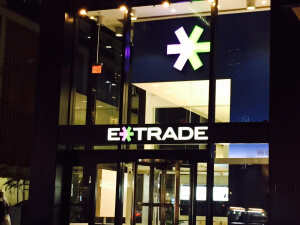Why did so many big non-US FX firms exit America and then go multi-asset, when America is THE home of retail multi-asset trading?
The mass exodus by British, Cypriot, Russian and European retail FX companies from the US market which took place as soon as the Dodd-Frank Wall Street Reform Act was sworn into US law by President Barack Obama received a tremendous amount of media attention, largely providing the view of those withdrawing from the market, and […]

The mass exodus by British, Cypriot, Russian and European retail FX companies from the US market which took place as soon as the Dodd-Frank Wall Street Reform Act was sworn into US law by President Barack Obama received a tremendous amount of media attention, largely providing the view of those withdrawing from the market, and did not consider the veritable giants that not only remain but prosper across the length and breadth of America.
America is not, and never has been, Europe. It is a genuine free market, with vast choice and sophisticated investors who are fiscally conservative yet have greater interest in self-generated prosperity than many European investors, therefore many Americans have stock and equity portfolios and understand the financial markets well. America also has draconian consumer protection laws, which, in the case of the FX industry, range from daily electronic reporting to regular inspections, to massive net capital adequacy requirements ($20 million for a retail broker) should something go awry.
If something does go awry, vast fines and restitution orders usually follow. In Britain, should a complaint hit the desk of the FCA, it will be forwarded to the FX company with a letter stating that if the company concerned does not want to go further, a settlement with a 30% discount can be paid and not so much as a visit from the FCA officials would be carried out. Between 2010 and 2014, 97% of FCA complaints were settled without so much as a visit.
Was it really regulatory cost that caused firms to exit the US?
In the US, any complaint would be filed in a court, become public information and often result in long, detailed investigations and substantial penalties – that is after an NFA official has sat at the desk of the compliance officer and looked over his shoulder for three months.
As a result, business practice and behavior is impeccable on the part of most large firms, in keeping with the civilized business environment that has come to be expected within American society.

Many firms leaving the US, which included IG Group, Alpari, FxPro, and GFT among others, cited operating costs, regulatory capital requirements and not enough potential business to make it viable as reasons for exit. Some home-grown companies also exited. FXsolutions bailed out, and ILQ was shown the door by the NFA after recurring discourse over the way the company was funded.
Much of the reporting on these matters at the time centered on how companies making the exit considered the US non-viable, but did not consider the very different landscape in the US which has led domestic companies to massive success.
The entire retail FX industry is now broadening its range of products. No longer is spot FX on MetaTrader 4 enough to provide brokers with a sustainable client base, or a safe risk policy. Traders are clearly wanting more from their brokers as precious metals, commodities, stocks and equities and the choice between spot FX and futures contracts (often in the form of CFDs) on thousands of instruments have joined platforms offered by British, Cypriot, Russian and Australian brokers.

America is home to the multi-asset trader, and has been for several years. Companies outside the US are now adding educational resources and adopting a higher touch strategy to engage with their clients, using methods incluing Saxo Bank’s social media distributed Saxo Strats videos, signal provision which comes with research from academic institutions, and in some cases lounges which customers can visit to experience the trading environment and ‘feel’ the company.
Ethos incompatible with American market?
Making a big deal about one lounge, or the addition of stocks and equities whilst concluding that there is no viability in the US for electronic trading firms is relatively akin to being an aircraft designer who says that the current shape of an aircraft fuselage is not aerodynamic so all planes must be scrapped and replaced with a wingless rectangle.
E*TRADE Financial Corp (NASDAQ:ETFC) for example is a firm that is very often ignored in the mainstream industry news. It is a publicly traded company whose share prices are constantly increasing, and had a revenue last year of $1.81 billion, and employs over 3,200 staff.
Whilst many companies which operate centrally from a main office and conduct their business via telephone calls with retail customers, or via IBs which are separate and often do not carry a standardized ethos that aligns with the company that they represent (unless it is a branch office or a franchise), the successful firms in America maintain a very personalized relationship with their customers and often conduct direct business.
E*TRADE is not considered part of the retail electronic trading market and is never covered in media, and does not attend the event and conference circuit with which we are all familiar. Neither does Scottrade or Charles Schwab.
All three companies have a giant network of physical offices, pretty much in every town across the United States, and several in each metropolitan city. Scottrade has over 500 branch offices nationwide, and keeps expanding
Looking at the different ethos on each side of the Atlantic, it is quite unsurprising that those who purchased British CFD and spread betting companies which were very London-centric in their methodology, had a job to do when taking them global. GAIN Capital’s purchase of City Index is a case in point, with the traditional firm having to be thoroughly modernized in order to align with its new owner.
America leads the retail multi-asset trading business; uses high touch model
Alongside its savings products, retail customers can trade stocks, bonds, options, mutual funds, and exchange-traded funds via electronic trading platforms or by phone, which is the direction that many FX firms have headed in outside of the US recently. IG Group last year launched a retail stockbroking platform aimed at bringing stock trading within the realms of the retail trader, yet American retail firms have been doing this for many years.

Founded in Palo Alto, California in 1982, E*TRADE predates the establishment of many firms overseas, and is larger than most retail FX companies in London’s financial district. Its head office within the Time & Life building in New York stands prominent.
The company is not without banking industry provenance, either. In March 2008, E*Trade appointed former JPMorganChase vice chairman Donald Layton as CEO. Mr. Layton had joined E*Trade’s board of directors in November 2007, at the same time as the company’s deal with Citadel which involved the sale to Citadel of E*TRADE’s securitized sub-prime mortgage investments for $800 million in cash.
Mr. Layton had been aggressively acting on a comprehensive turnaround plan and the company had stabilized and was seeing the beginnings of a return to growth after the financial crisis – which FinanceFeeds can absolutely confirm is well and truly over in the US, with a fully recovered economy.
Very shortly afterwards, Robert Druskin, former COO of Citigroup Inc. was named interim CEO and chairman when Mr. Layton retired at the end of 2009 while E*Trade continued to search for a permanent CEO.
In terms of the type of investor that may be a read across from this outside the US, British company Hargreaves Lansdown, the largest financial services company in the UK with a market capitalization of over £6 billion, whose Bristol-based operations were visited by FinanceFeeds earlier this month, is the closest comparison, yet is never featured as part of the electronic trading business in the UK, despite its proprietary system that offers CFDs on many asset classes.
With the evolution of retail FX into an increasingly multi-asset environment, it is surprising that such a mass exodus from the US occurred, period.









